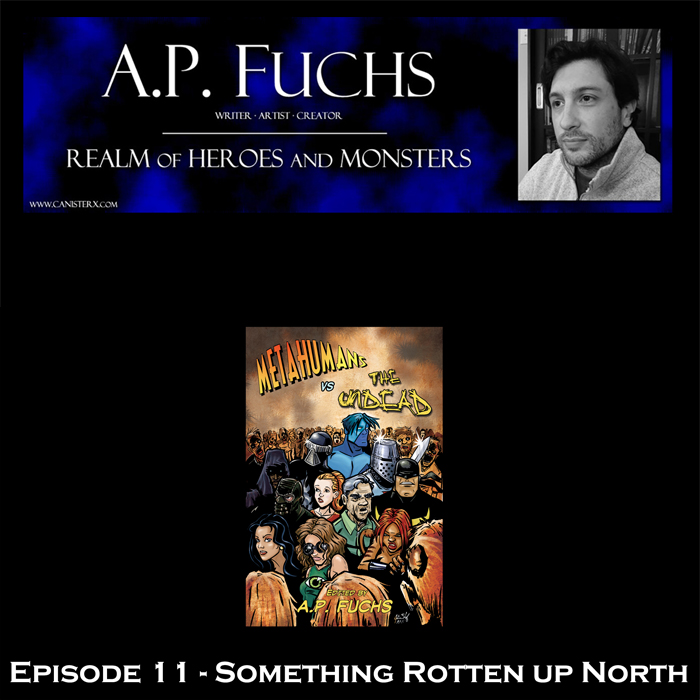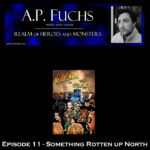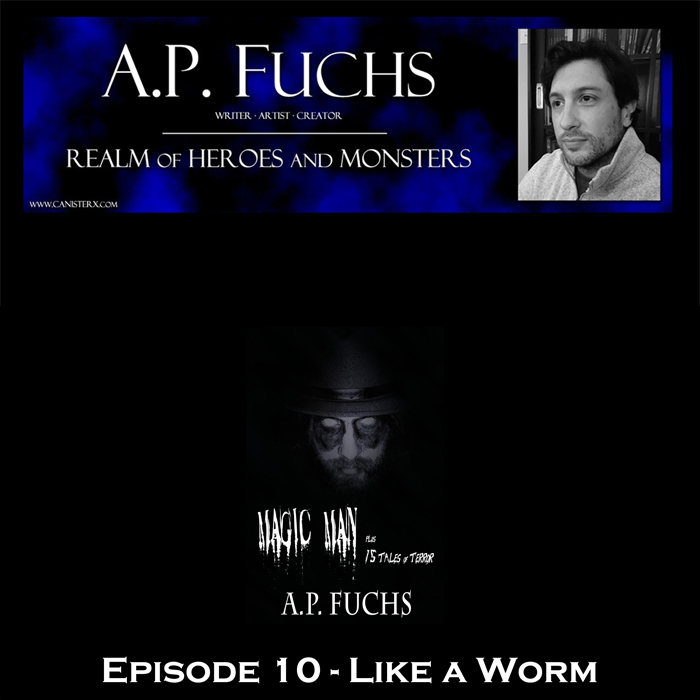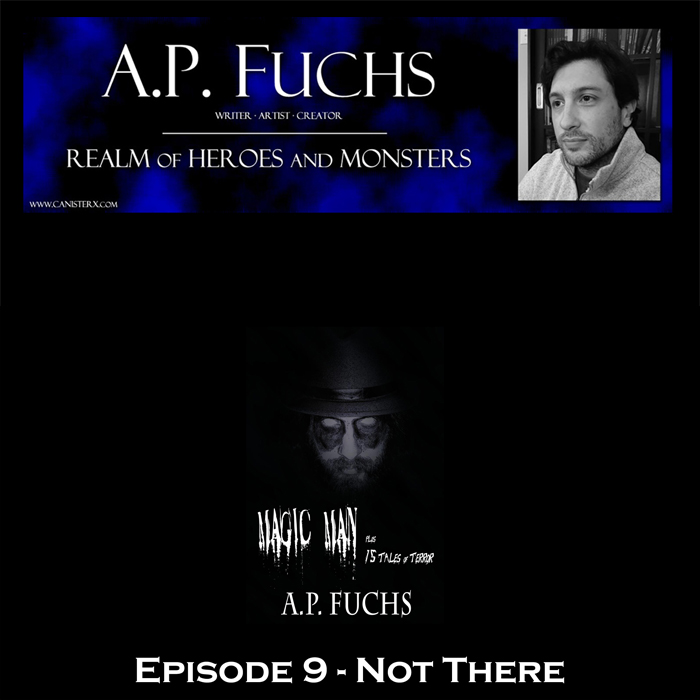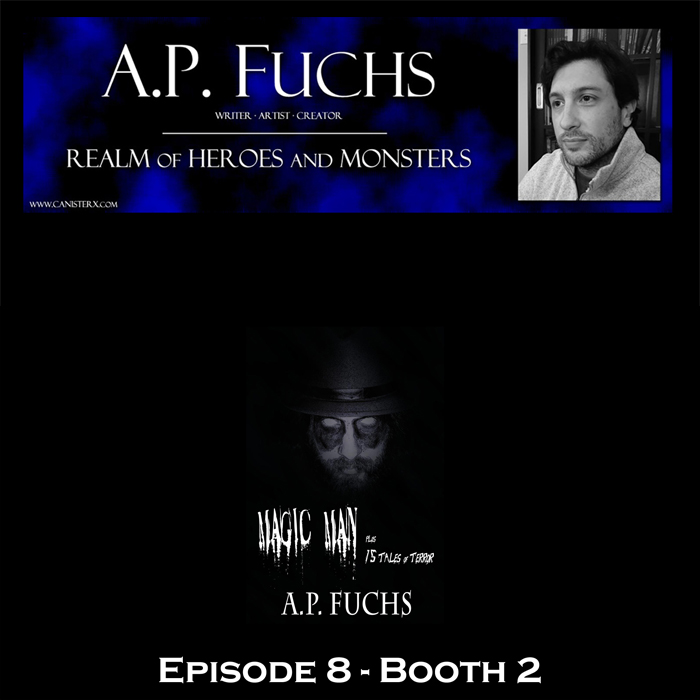REALM OF HEROES AND MONSTERS: STORY TIME with A.P. FUCHS: S02EP12 –
Below
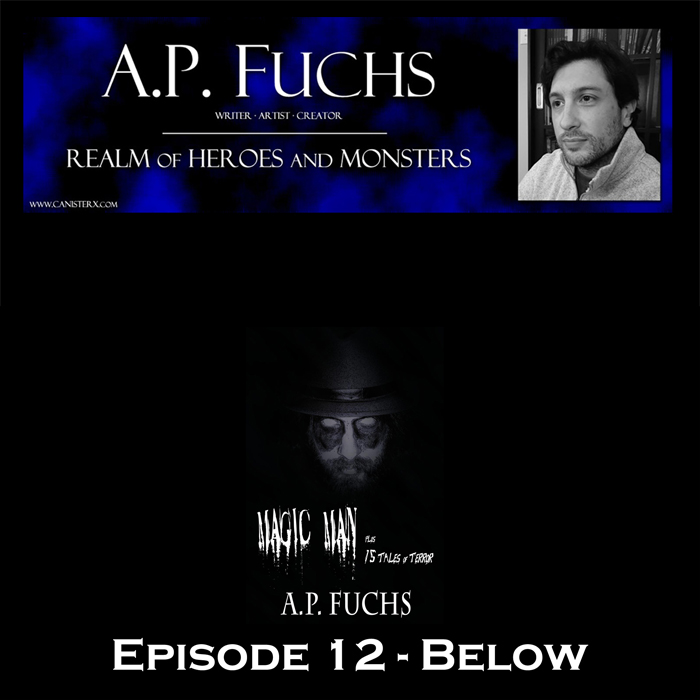
Episode 12: Below – Carry loved his son. Always had even fifty years after his death. Except, Philip’s death was Carry’s fault and the Magic Man has come to help make things right. At a cost.
The Magic Man returns for this episode of the REALM OF HEROES AND MONSTERS: STORY TIME podcast with A.P. Fuchs. The Magic Man villain is a joy to write because he forces you to come up with unique ways for him to deliver on his word but always with a dark twist. You’ll learn more about it in the Story Behind the Story segment of this week’s episode.
Thank you for supporting the show thus far and right now, here in Season Two. Truly, thank you for listening.
Cheers.
Get your own copy of MAGIC MAN PLUS 15 TALES OF TERROR in paperback or eBook at:
Please subscribe for all the latest episodes.
Read FREDRIKUS, an anthropomorphic dog in a dystopian sci-fi world at http://www.fredrikus.com
My newsletter, The Canister X Transmission, goes out Saturdays. Subscribe free at https://canisterx.com/the-canister-x-transmission-weekly-newsletter/
The One Link (LinkTree): https://linktr.ee/apfuchs
Join me on my Patreon journey for serial novels, essays, behind-the-scenes goodies, special photography, and more at http://www.patreon.com/apfuchs


